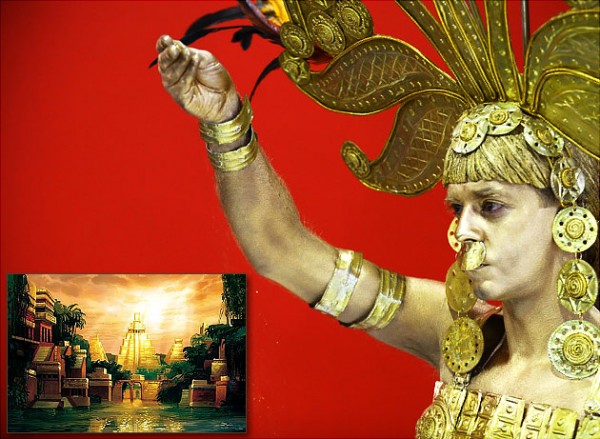In every country, as we speak, people are drinking alcohol in order to intoxicate themselves. Certain types of liquor are notorious for the way they affect the drinker. Brandy has a reputation for inducing painful hangovers, while specific liquors, such as Jagermeister, are known as digestives liquor and are meant to be consumed after meals to aid digestion. However, some of the most famous types of liquor are known primarily for their extremely high alcohol content. Some of the world's strongest alcohols are chemically engineered and produced to severely alter your state of consciousness.

Sake is Japanese liquor produced from rice, water, and mold. This alcoholic beverage was first documented in 712 A.D. as it was found in the Kojiki, or Japan's first written history. Sake is unique because of its multiple parallel fermentation process. This is where starch is converted to sugar, and sugar into alcohol by way of yeast simultaneously; whereas many other alcohols complete one process at a time. While Japanese demand for sake decreases, the worldwide popularity and demand for sake increases. Sake is almost always 30-40 proof, and since alcohol content is exactly half the proof, sake weighs in at 15-20% alcohol per volume.

The recipe to this U.S. neutral grain spirit liqueur is one of grandeur. Beginning with quality bourbon, add one inch vanilla bean, a quarter of lemon, half a cinnamon stick, four cloves, a few cherries and an orange slice. Let ingredients sit for several days and finish with a touch of honey. This fruit spiced whiskey flavored alcohol is a favorite among college campuses across the United States. The alcohol per volume in Southern Comfort ranges from 21-50% making it a versatile crowd pleaser.

Sake is Japanese liquor produced from rice, water, and mold. This alcoholic beverage was first documented in 712 A.D. as it was found in the Kojiki, or Japan's first written history. Sake is unique because of its multiple parallel fermentation process. This is where starch is converted to sugar, and sugar into alcohol by way of yeast simultaneously; whereas many other alcohols complete one process at a time. While Japanese demand for sake decreases, the worldwide popularity and demand for sake increases. Sake is almost always 30-40 proof, and since alcohol content is exactly half the proof, sake weighs in at 15-20% alcohol per volume.

All of you who have eaten the worm are familiar with Mescal. Produced only from agave plants in Oaxaca, Mexico, this alcohol must meet strict guidelines in order to be mescal. Earth ovens are used in the early processes of cooking down the hearts of the agave plant to produce the liquor. Three classifications of mescal are produced: Anejo, Reposado, and Joven. This liquor is consumed heavily by U.S. tourists while in Mexico, and as for the worm - its name is Hypopta Agavis. Known as the Maguey worm, this species is commonly found on agave plants. The alcohol content of mescal is between 35-40%, rivaling its sister liquor tequila.

The word arrack is derived from the Arabic word arak, which translates to "sweet" or "strong liquor." Those who drink arrack commonly agree that the taste is that of a whiskey-rum blend. Distilled from fermented fruits, grain, sugar cane, and the sap of coconut palms arrack is most popular in Sri Lanka, Indonesia, and the Philippines. The proof of arrack differs with each recipe; therefore, the alcohol content varies from 33-50%. Arrack is commonly used in cocktails, and can compliment other beverages such as orange juice and cola.

Vodka is without question the most popular spirit in the liquor market today. We're sure you already knew this and have some fuzzy memories of your own experiences with it. This alcohol has low levels of congeners, or impurities, which minimizes the damage of a hangover. For the same reason, vodka is the most versatile liquor when mixing into cocktails. All this can be attributed to vodka being distilled anywhere from 3-7 times before bottling. Created in the grain harvesting areas of Western Russia, Belarus, Lithuania, Ukraine and Poland, the ingredients of vodka are rye or wheat, potatoes, and sugar beet molasses. The alcohol content of vodka varies between 35-50%.

This spirit is produced from only the blue agave plant grown in the Jalisco regions of Guanajuato, Michoacán, Nayarit, and Tamaulipas. The restrictions upon tequila instructions are linked to the volcanic soil which provides perfect conditions for blue agave growth. Tequila is indeed special liquor, but contrary to popular belief it does not contain any hallucinogenic properties, it's just a real sloppy drunk. Tequila has five categories including Blanco, Joven, Reposado, Anejo, and Extra Anejo. The difference being age and casking techniques, which can be seen in the hue of tequila going from clear, yellow, amber, and dark brown. Tequila proof is measured between 70 and 110 giving this liquor an alcohol content of 35-55%.

Presently, most gin is distilled, produced, and consumed in Europe, the majority of that in the United Kingdom. White grain flavored with juniper berries is distilled at the beginning of the the process. Once done, the grain is distilled again with other botanicals such as anise, angelica root, coriander, saffron and licorice root. The consensus among the majority of folks is that gin smells like pine trees and tastes like rubbing alcohol. This spirit certainly has a reputation, but as a medicinal alcohol not many spirits can match its usefulness. The alcohol content of gin is 40-50% as its potency matches its complexity.

Brandy is enjoyed in its own special glass called a snifter. Regarded as luxury liquor, this eaux-de-vie has an alcohol content between 36-60%. Brandy is best known for being after dinner drink due to its uncompromising smoothness. The word brandy is derived from the Dutch word brandewijn which translates to "burnt wine." There are three classifications of brandy: grape, fruit, or pomace. Many of the famous b*****es hail from the Cognac region of France such as Courvoisier, Remy Martin, and Hennessy. As delicious as brandy may be, congeners in this alcohol are considerably higher than other spirits therefore resulting in quite the hangover the morning after.

This bourbon whiskey is produced near Lawrenceburg, Kentucky and has an alcohol content ranging from 40-54%. Wild Turkey is nicknamed the "Dirty Bird," as its reputation proceeds itself as strong liquor. The ingredients used to make Wild Turkey come from across the nation, the barley coming from Montana, the corn from Kentucky and Indiana and the rye coming mostly from North Dakota. In 1995, Wild Turkey released its 101 proof label available only in the United States. Standard bourbons are 80 proof, giving a slight edge to the Turkey for being one of the strongest liquors in its class.

We discussed Wild Turkey, and it's technically an American whiskey, so why didn't we group it together with these whiskies? The reason is due to the standard proof of many bourbons being 80, but can reach as high as 120. All bourbon whiskies are aged in charred oak barrels to achieve the flavor and appearance they possess. There are four distinct types of whiskey: single malt, vatted malt, blended grain, and single grain. Evidence suggests that distillation was brought from the Mediterranean region back to the British Isles in the 6th and 7th centuries. Famous brands of bourbon whiskey include Jack Daniels, Evan Williams and Jim Beam.

Just as with bourbon whiskey, there are four distinct categories for Scotch whisky. You may have noticed the different spelling: Americans and the Irish spell whiskey with an e, and the Scots spell whisky without an e, just to be difficult. Scotch whisky is one of the slowest aging liquors, as well as one of the most expensive when acquiring rare years. There are six Scotch producing regions in Scotland: Islands, Islay, Campbeltown, Lowland, Highland, and Speyside. Scotch whisky has an identical proof to its American counterparts ranging from 80-136, giving Scotch an alcohol content of 40-68%.

Absinthe is among the world's most potent and intoxicating liquors. It's nicknamed "la fee verte" and better known as the Green fairy. Absinthe's alcohol content ranges from 45-68% and is traditionally green, but can be colorless. Absinthe is anise flavored, and the active chemical thujone can be found in the main ingredient, Artemisia Absinthium, a.k.a. Grande wormwood. Absinthe has been illegal in the United States since 1915 because of its alleged psychoactive effects upon consumers. Absinthe is enjoyed by slowly trickling ice cold water onto a sugar cube placed atop a special spoon that allows the water and sugar to dissolve equally into the absinthe.

Have you ever been to a party where a watermelon has been cored and soaked in alcohol? If you have, chances are you are familiar with Bacardi 151. The name stems from the proof of the rum, which is 151 providing for an alcohol content of 75.5%. This over-proof rum is used mainly for cocktails, and the infamous "pj" or party juice. Bacardi is the only brand that installs a flame arrester on the bottle due to the high volatility of the alcohol. Popular flaming drinks, such as the B-52, require Bacardi 151 to concoct.

Due to the extreme alcohol content of 95% grain alcohol, it is illegal to purchase in California, Florida, New York, Pennsylvania, West Virginia, Hawaii, Michigan, Nevada, and Virginia. This liquor is a neutral grain spirit which is relatively low in impurities, which you've learned by now, minimizes the effects of what we all know to be a hangover. Grain alcohol has an ugly reputation on college campuses everywhere due to the ease in which alcohol poisoning can occur while consuming it. This spirit has nearly tripled the potency of most alcohols, but finds itself within the same price range. Grain alcohol is without a doubt the strongest spirit available for retail purchase.

At the top of the mountain rests the heavyweight champion of all liquors. Moonshine is produced in unlicensed stills, registers a perfect 100% alcohol content, and can be found in more than 60 countries. Moonshine, hooch, or white lightning can be made from corn meal, sugar, yeast, and water. There are two different types of still that are used to produce moonshine, a still pot and a reflux still. The still pot is more commonly used among shiners for its simplicity and mobility. The reflux still is capable of producing finer quality hooch at faster rates but sacrifices mobility. "Lead burns red and makes you dead" is a famous adage concerning the lead contents of moonshine and how when set ablaze turns red. Moonshine can be flavored with any fruit, and even birch bark to give the hooch a minty flavor.
So, What'll You Have?
Pick your poison carefully because each type of alcohol will produce a different kind of drunk. Vodka and Tequila are known for sloppy, loose drunkenness. Scotch whisky and bourbons are known for chest-warming heavy-headed buzzes. Rum, brandy, and specifically cognacs are associated with extremely painful hangovers. Alcohol reacts differently to all individuals in regard to their body chemistry. Across the world in many countries friends, family, and acquaintances have been getting hammered the whole time you were reading this article. In an attempt to catch up with them, I'd suggest Long Island Iced Tea.
Author : Unknown
p/s: Even though, I don't like to drink alcohol but I would like to try some Gin, Vodka, Vermouth, Chianti, Bourbon, Sherry and Pisco because these are the character in my favourite Detective Conan! ^^


























































